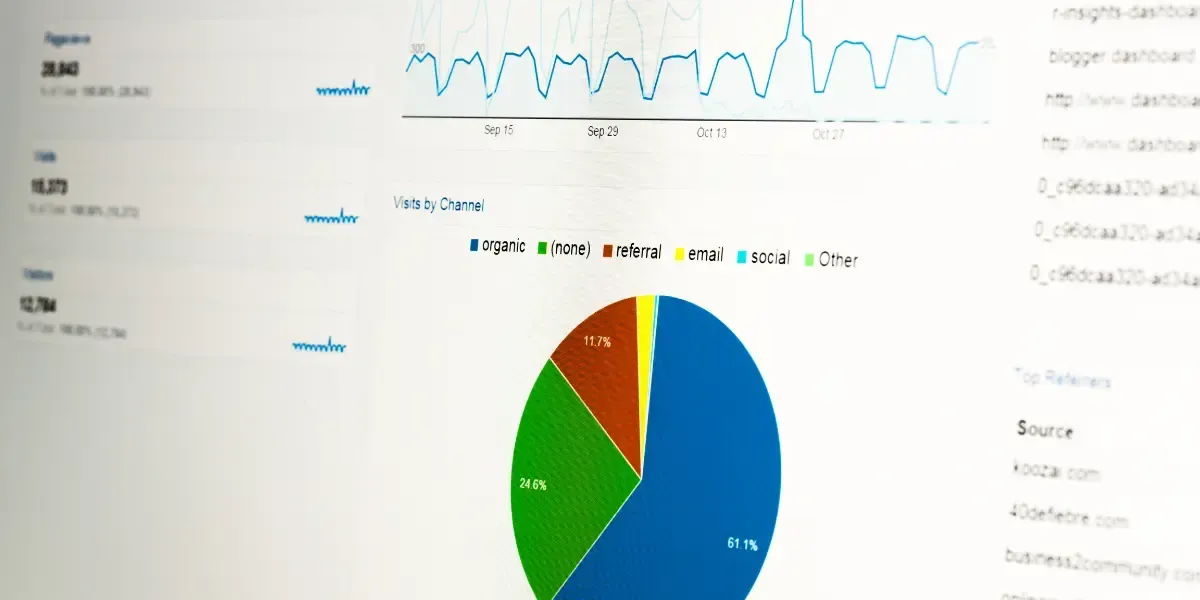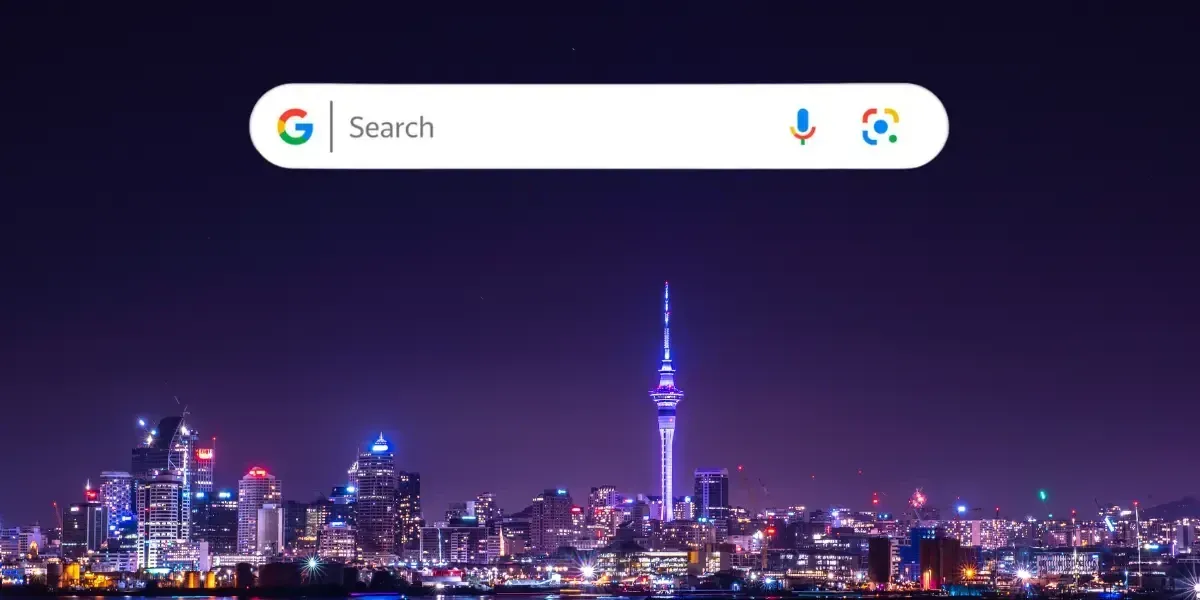What Is Seasonal SEO?

Contents
- The Impact of Seasonal SEO
- Two Seasonal SEO Strategies
- What Are the Benefits?
- Tools for Understanding Seasonal Popularity
- Optimising for Seasonal SEO
- Aligning Your SEO Strategy
- Implementing Your Seasonal Strategies
Listen to this article
Staying ahead of the curve is crucial for businesses seeking sustained success year-round. One strategy that has gained prominence over the years is seasonal SEO.
So, what exactly is seasonal SEO? This approach involves tailoring your search engine optimisation efforts to align with specific seasons and events throughout the year, maximising your brand’s visibility and reaping the rewards of targeted consumer behaviour.
The Impact of Seasonal SEO
Seasonal SEO can be thought of as the art of timing. It’s about recognising the ebb and flow of user behaviour throughout the year and adapting your SEO strategy to match these fluctuations.
This is vital because consumer needs and preferences change with the seasons and during key events, and businesses that can anticipate and cater to these changes stand to gain a competitive edge.
Imagine a tourism company that optimises its content for summer-related keywords during the months leading up to the holiday season. By doing so, they’re tapping into the heightened interest in travel during that time, boosting their chances of ranking higher in search results and attracting more potential customers. For example, travel agencies and airlines often tailor their promotions based on the seasons. The team at Clickthrough have over 13 years experience in Auckland, tailoring our SEO servicesaround seasonal trends. Allowing businesses to grow and take advantage of these opportunities throughout the year.
Two Seasonal SEO Strategies
There are two primary types of Seasonal SEO strategies: time-based and event-based. Time-based strategies involve optimising for specific periods that recur annually. For example, a business selling outdoor equipment could focus on summer-related keywords as warmer months approach. On the other hand, event-based strategies revolve around optimising for specific events or occasions, such as Christmas or major international sporting events like the FIFA Women’s World Cup. For instance, an e-commerce store could enhance its SEO efforts during the holiday season by targeting keywords related to holiday gifts, decorations, and celebrations. Similarly, when an event like the FIFA Women’s World Cup is happening, businesses related to sports apparel, fan merchandise, and even local travel can leverage event-based SEO strategies to attract a larger audience.
What Are the Benefits?
One of the most significant benefits of seasonal SEO is its potential to balance out revenue fluctuations. Many businesses experience natural peaks and troughs in sales throughout the year. By strategically capitalising on high-demand periods, such as holidays or specific seasons, you can generate additional revenue streams that help sustain your business during leaner months. Moreover, seasonal SEO offers the opportunity to create more targeted marketing campaigns. When you align your content with the interests and needs of your audience during specific times of the year, you’re more likely to engage potential customers and convert them into paying clients.
Tools for Understanding Seasonal Popularity
Understanding the popularity of certain keywords and topics during different seasons is essential for crafting a successful seasonal SEO strategy. Luckily, powerful tools are at your disposal, such as Google Trends, Keyword Planner, and Search Console. Google Trends allows you to visualise the popularity of search terms over time, helping you identify when interest spikes for specific keywords. Keyword Planner aids in finding relevant keywords and estimating their search volumes, while Search Console provides insights into how your site is performing in search results. By using these tools, you can identify the optimal times to promote certain products or services and shape your content strategy accordingly.
Optimising for Seasonal SEO
When it comes to optimising your content for seasonal trends, it’s important to follow a strategic approach that encompasses different phases of user behaviour. Segmentation is key. During the ramp-up period, focus on creating anticipation and interest for the upcoming season or event. As you enter the engage period, provide valuable and engaging content that caters to the needs of your audience during that specific time. Finally, during the slow-down period, consider strategies to maintain customer engagement and begin laying the groundwork for the next high-demand phase.
Aligning Your SEO Strategy
To fully leverage the potential of seasonal SEO, it’s crucial to recognise and adapt to shifts in search patterns that occur during different times of the year. This recognition should inform your SEO strategies, allowing you to align your content with peak shopping periods and consumer preferences. For instance, during a holiday season, your SEO efforts include creating gift guides, promoting special deals, and optimising for keywords related to festive activities. By understanding the nuances of your audience’s search behaviour, you can provide the content they’re actively looking for.
Implementing Your Seasonal Strategies
To effectively implement seasonal SEO strategies, consider the following tips:
- Optimise existing content: Update and optimise your existing content to align with seasonal trends and keywords.
- Create seasonal landing pages: Develop dedicated landing pages that cater to specific seasons or events.
- Avoid dates in URLs: This prevents content from becoming outdated and irrelevant once the season or event has passed.
- Strategic linking: Interlink relevant seasonal content to enhance user experience and SEO performance.
- Backlink planning: Build relationships with other websites for potential backlinks to your seasonal content.
- Remember that during high-volume periods, Google’s SERPs can undergo significant changes. Monitor your rankings and traffic closely, making adjustments as needed to maintain your visibility and capitalise on the increased demand.
Conclusion
Seasonal SEO is a powerful strategy that can help businesses not only adapt to changing consumer behaviour but also thrive in highly competitive markets. By aligning your SEO efforts with specific seasons and events, you can enhance your brand’s visibility, engage with your audience more effectively, and generate additional revenue streams. Through careful analysis of seasonal trends, optimisation of content, and alignment of SEO strategies, businesses can stay ahead of the curve and secure long-term success in the dynamic world of digital marketing. So, get ready to ride the waves of seasonal demand and watch your business flourish like never before. Reach out to our digital marketing agency for a meeting today to learn more.
FAQ
When should I start working on SEO for Christmas time?
To effectively prepare for Christmas time through SEO, you should initiate your efforts around 2-3 months before the holiday season begins. This lead time allows search engines to index your optimised content and for potential customers to discover your offerings ahead of the festive rush.
How can I optimise my e-commerce site for seasonal SEO?
To optimise your e-commerce site for seasonal SEO, focus on actions such as crafting dedicated landing pages featuring products relevant to the season, fine-tuning product titles and descriptions to include pertinent seasonal keywords, highlighting special promotions visibly, and enhancing site performance and mobile usability to facilitate seamless user experiences and transactions.
Digital Blog












